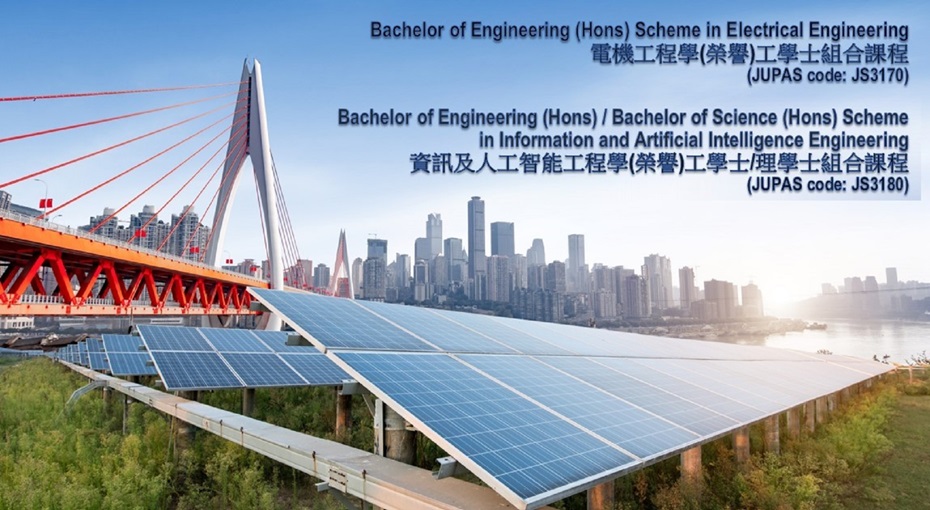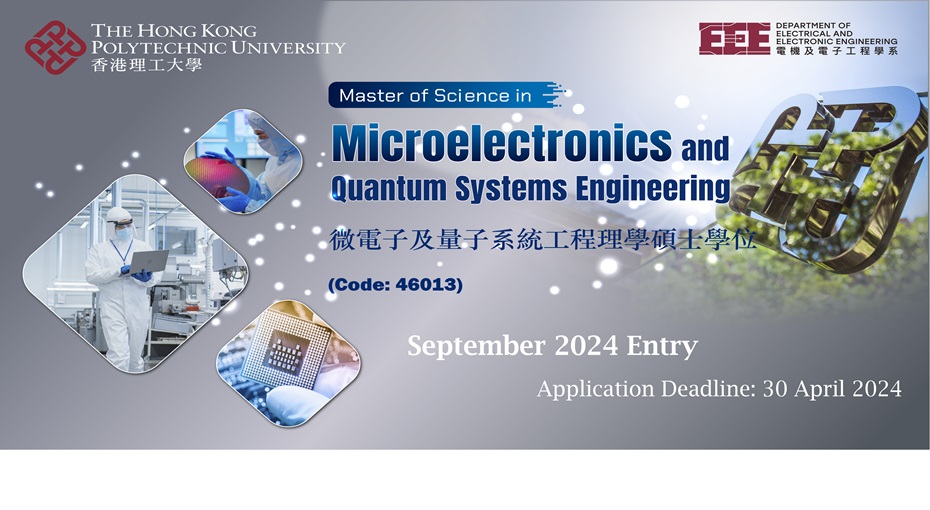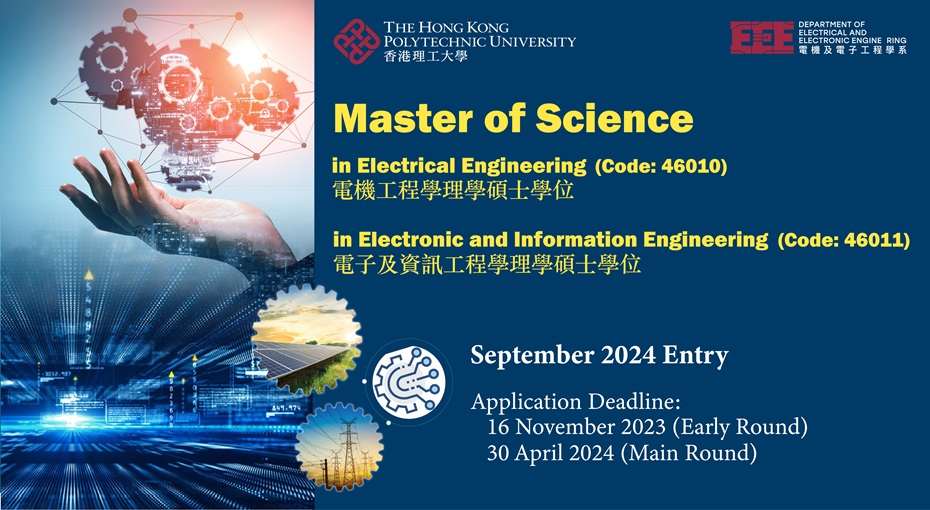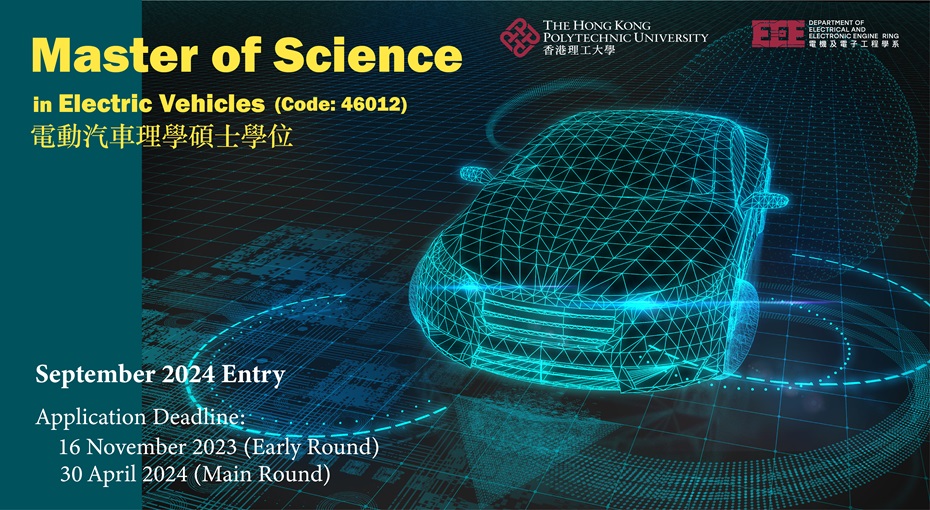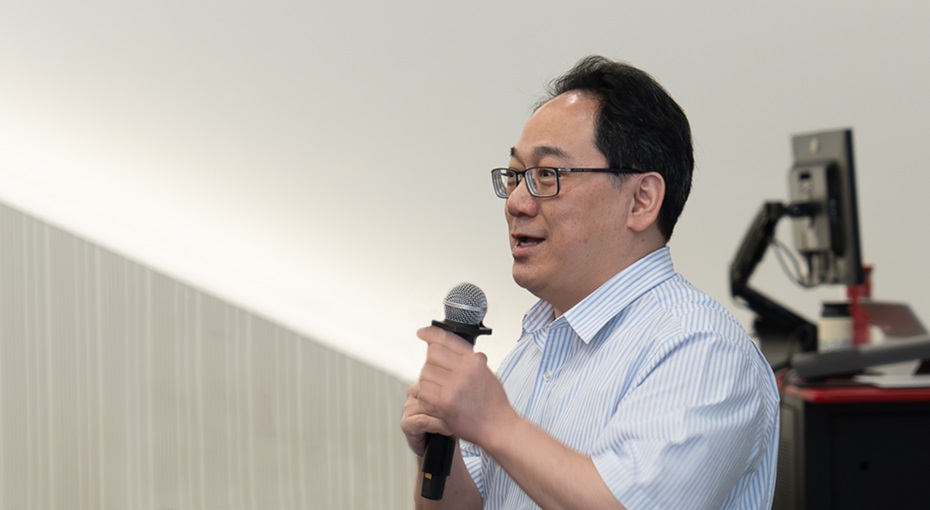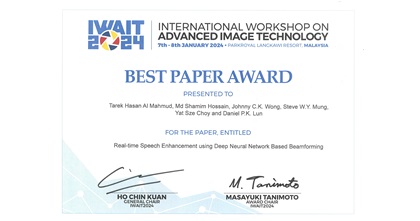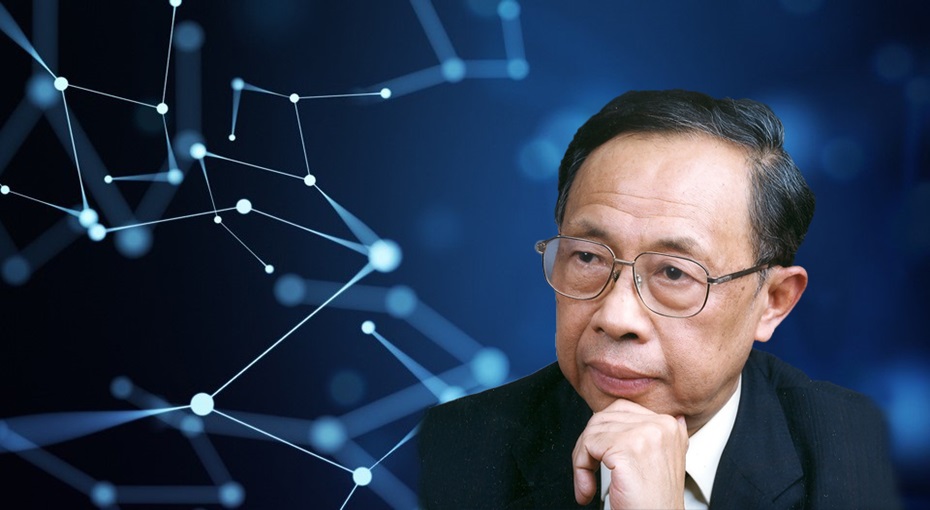
Ir Professor CHAN Ching Chuen, as Distinguished Chair Professor of Electric Vehicles and Smart Energy of EEE
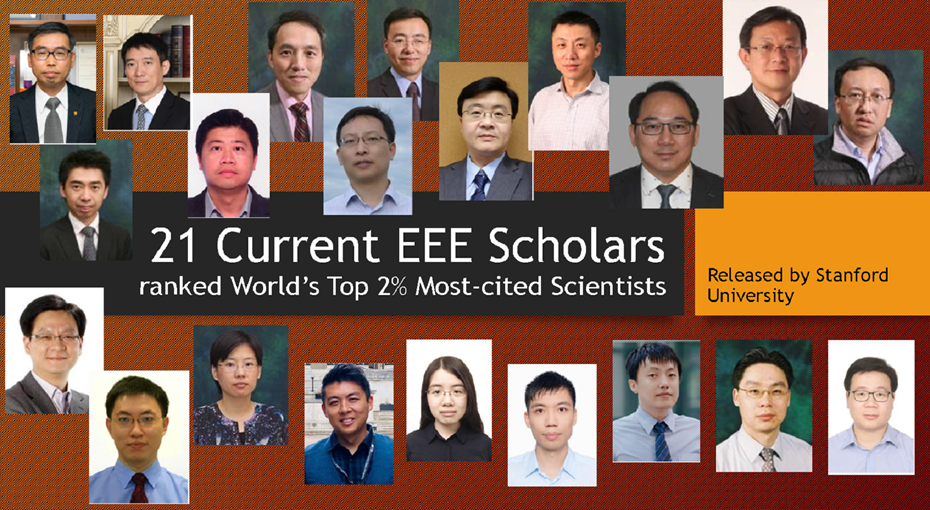
What's New
What's New
The Department is going to organize the “EEE Robotic Challenge Junior 2024: Robotic Soccer Cup” in July 2024 to stimulate students' abilities in creating, problem-solving, and interest in Electrical and Electronic Engineering. Before the pandemic, this event was organized and had attracted over 600 students and teachers to join the competition. This series of competitions can help teach the participants the skills and knowledge to build their ow
16 Apr 2024
Prof. Gang Li’s team published two papers on Nature Communications on 28 February and 2 March 2024, reporting research breakthroughs in the field of organic solar cells. In the work “Rational molecular and device design enables organic solar cells approaching 20% efficiency”, they systematically investigated the design rules of guest molecules by theoretical simulations and successfully synthesized a new molecule, o-BTP-eC9, and achieved a reco
5 Apr 2024
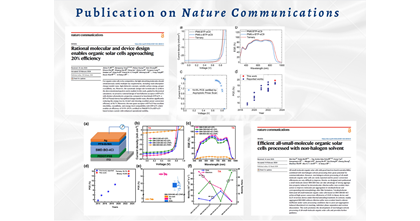
The EEE Dragon Boat Team kick-started their training with a traditional dragon boat eye-dotting ceremony on 24 March 2024 at the Tseung Kwan O waterfront. The ceremony was officiated by Professor C.Y. Chung, Head of the Department. Formed by EEE alumni, teachers, and students, the EEE Dragon Boat Team has been joining various local and overseas dragon boat races for more than a decade. These meaningful activities not only enhance the physical
24 Mar 2024

The enhanced three-level Outstanding PolyU Alumni Award (OPAA) introduced last year has achieved great success. The Department of Electrical and Electronic Engineering (EEE) is pleased to announce that the new round of departmental OPAA 2024 is now calling for nominations until 30 April 2024 (Tuesday). The departmental OPAA aims to publicly recognise outstanding graduates of EEE for their professional achievements and significant contributions t
18 Mar 2024
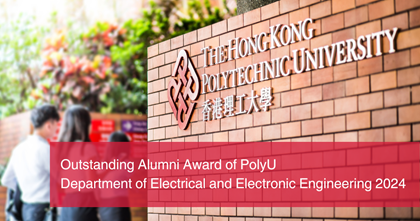
The Undergraduate Research and Innovation Scheme (URIS) is a prestigious programme of PolyU to promote undergraduate research for nurturing the next generation of intellectuals. The Scheme offers an enquiry-based learning opportunity to empower PolyU undergraduate students to build research track records and equip themselves with competencies to take up research career opportunities in Hong Kong and beyond. We are delighted to share that three E
21 Feb 2024
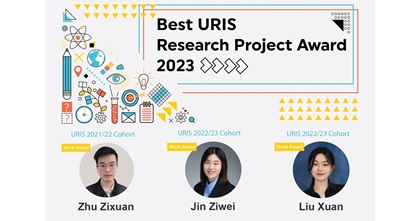
We are delighted to announce that our Distinguished Chair Professor, Ir Prof. CHAN Ching-chuen, SBS, has recently published a book titled “Integration of Energy, Information, Transportation and Humanity – Renaissance from Digitization” by Elsevier. Prof. Chan’s accomplishment reflects his expertise and dedication in the fields of four networks (energy, information, transportation and humanity) and four flows (energy, information, material and val
20 Feb 2024
Since 2003, the Faculty Research Committee has been honoring the remarkable achievements of FENG academic staff members in securing external competitive research grants through the establishment of the Faculty of Engineering Research Grant Achievement Award. This year, we are proud to announce that Prof. Eric Cheng, Prof. Haibo Hu, Dr Dongmei Huang, Prof. Zhao Xu and Prof. Aping Zhang have been selected as the winners of this award!
27 Dec 2023
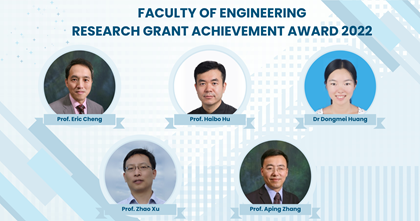
Our students have once again showcased their technical skills in the field of ICT, achieving impressive results in the Huawei ICT Competition 2023-2024 Hong Kong SAR. Under the guidance of Dr Lawrence Cheung, two teams of PolyU students obtained the Third Prizes respectively in the Computing Track and Cloud Track of this competition. Third Prize (Computing Track) PolyEngineer Team: XIAO Zhe (EEE student) XU Zhuoning (EEE student) YU Jiale (ME st
14 Dec 2023
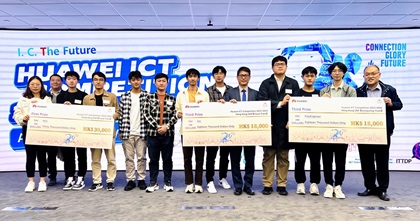
Congratulations to Prof. Gang Li, Chair Professor of Energy Conversion Technology, and Dr Ruijie Ma, Postdoctoral Fellow of EEE, for being selected as the Highly Cited Researchers in the cross-field category by Clarivate Analytics again this year! A total of 6849 researchers from more than 1300 institutions in 67 nations and regions are named as Highly Cited Researchers in 2023. This prestigious list acknowledges scholars globally whose papers r
17 Nov 2023
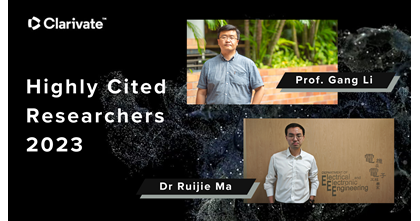
Prof. Gang Li’s team published two papers on Nature Communications on 28 February and 2 March 2024, reporting research breakthroughs in the field of organic solar cells. In the work “Rational molecular and device design enables organic solar cells approaching 20% efficiency”, they systematically investigated the design rules of guest molecules by theoretical simulations and successfully synthesized a new molecule, o-BTP-eC9, and achieved a reco
5 Apr 2024

The EEE Dragon Boat Team kick-started their training with a traditional dragon boat eye-dotting ceremony on 24 March 2024 at the Tseung Kwan O waterfront. The ceremony was officiated by Professor C.Y. Chung, Head of the Department. Formed by EEE alumni, teachers, and students, the EEE Dragon Boat Team has been joining various local and overseas dragon boat races for more than a decade. These meaningful activities not only enhance the physical
24 Mar 2024

The enhanced three-level Outstanding PolyU Alumni Award (OPAA) introduced last year has achieved great success. The Department of Electrical and Electronic Engineering (EEE) is pleased to announce that the new round of departmental OPAA 2024 is now calling for nominations until 30 April 2024 (Tuesday). The departmental OPAA aims to publicly recognise outstanding graduates of EEE for their professional achievements and significant contributions t
18 Mar 2024

The Undergraduate Research and Innovation Scheme (URIS) is a prestigious programme of PolyU to promote undergraduate research for nurturing the next generation of intellectuals. The Scheme offers an enquiry-based learning opportunity to empower PolyU undergraduate students to build research track records and equip themselves with competencies to take up research career opportunities in Hong Kong and beyond. We are delighted to share that three E
21 Feb 2024

We are delighted to announce that our Distinguished Chair Professor, Ir Prof. CHAN Ching-chuen, SBS, has recently published a book titled “Integration of Energy, Information, Transportation and Humanity – Renaissance from Digitization” by Elsevier. Prof. Chan’s accomplishment reflects his expertise and dedication in the fields of four networks (energy, information, transportation and humanity) and four flows (energy, information, material and val
20 Feb 2024
Since 2003, the Faculty Research Committee has been honoring the remarkable achievements of FENG academic staff members in securing external competitive research grants through the establishment of the Faculty of Engineering Research Grant Achievement Award. This year, we are proud to announce that Prof. Eric Cheng, Prof. Haibo Hu, Dr Dongmei Huang, Prof. Zhao Xu and Prof. Aping Zhang have been selected as the winners of this award!
27 Dec 2023

Our students have once again showcased their technical skills in the field of ICT, achieving impressive results in the Huawei ICT Competition 2023-2024 Hong Kong SAR. Under the guidance of Dr Lawrence Cheung, two teams of PolyU students obtained the Third Prizes respectively in the Computing Track and Cloud Track of this competition. Third Prize (Computing Track) PolyEngineer Team: XIAO Zhe (EEE student) XU Zhuoning (EEE student) YU Jiale (ME st
14 Dec 2023

Congratulations to Prof. Gang Li, Chair Professor of Energy Conversion Technology, and Dr Ruijie Ma, Postdoctoral Fellow of EEE, for being selected as the Highly Cited Researchers in the cross-field category by Clarivate Analytics again this year! A total of 6849 researchers from more than 1300 institutions in 67 nations and regions are named as Highly Cited Researchers in 2023. This prestigious list acknowledges scholars globally whose papers r
17 Nov 2023

The Department is going to organize the “EEE Robotic Challenge Junior 2024: Robotic Soccer Cup” in July 2024 to stimulate students' abilities in creating, problem-solving, and interest in Electrical and Electronic Engineering. Before the pandemic, this event was organized and had attracted over 600 students and teachers to join the competition. This series of competitions can help teach the participants the skills and knowledge to build their ow
16 Apr 2024
65 th
Quacquarelli Symonds (QS) World University Rankings 2024 PolyU – Ranking Highlights
74 th
Quacquarelli Symonds (QS) World University Rankings 2024
6 th
2022-2023 Best Global Universities Rankings by the U.S. News and World Report
38 th
Times Higher Education World University Rankings 2024




